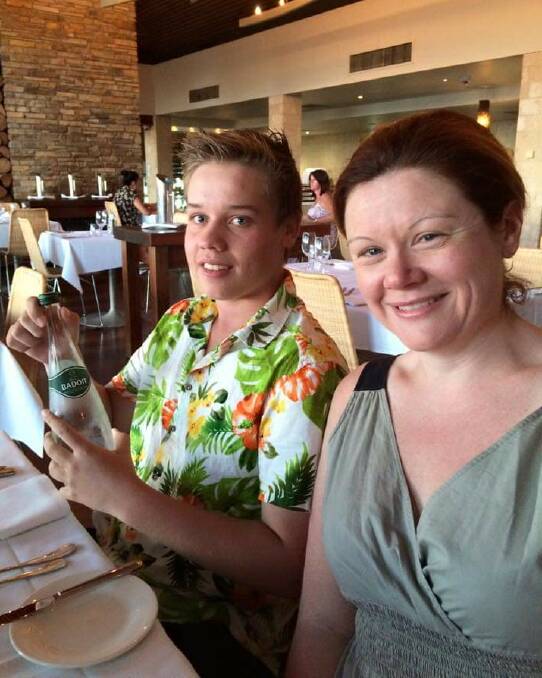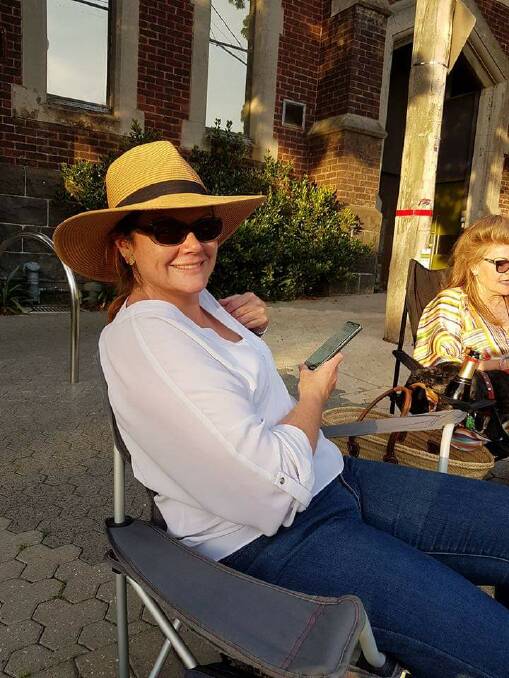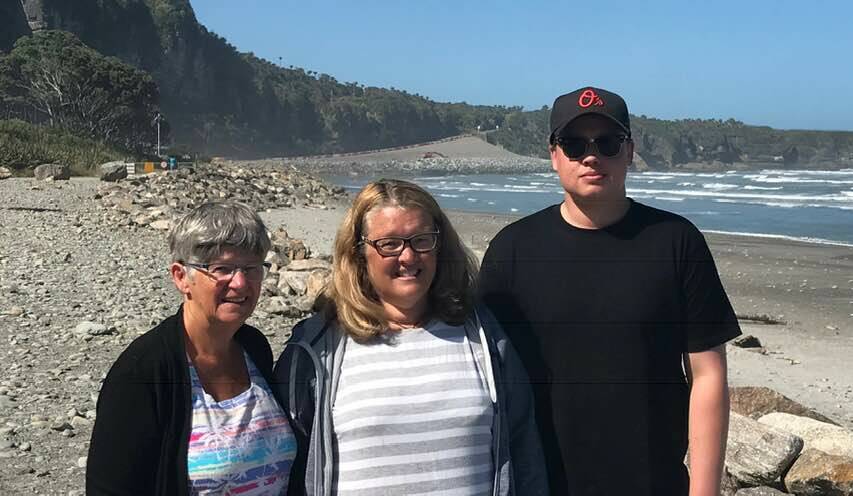
I've never been one for emotions, whether thanks to youth or pure naivete, so I didn't know how I would cope with the loss of a parent - let alone at a time when I'm locked away from the rest of my family.
Subscribe now for unlimited access.
or signup to continue reading
It's not that my step-mother's death was unexpected. She had been battling cancer for five years, and it wasn't unusual for a family outing to turn into some sort of black comedy, as we tried to meet mortality with humour and grace.
Still, it happened too quickly, and when the news came from Dad in Western Australia on a February morning, I didn't know how to feel.
There was, at first, a crushing sadness. Then a minute later, just guilt at the fact I could still function.
I arranged my final pieces for the next day's newspaper, ran errands and started the drive to the city.
COVID-19 was something the rest of the world was dealing with at the time.
The number of cases in Australia was in the teens. As a busy Melbourne Airport suggested, the thought of state and national borders closing would be laughed off as a dystopian impossibility.
I remember entertaining myself with the sight of people wearing face masks, and sharing with my old man how funny it was that some were overreacting to the threat of a bad flu.
After some weeks, life resumed. I was back in Horsham, excitement was building for the footy season, and there was a newspaper to put together.
Around me, everything was returning to "normal", and I threw myself into my work.
Journalism is the perfect industry for someone who wants to distract themselves from their own issues by delving into the lives of others.
I would have my bad days, of course, but I managed.
Then, the world shut down.

All the things that had anchored my life in the Wimmera - sports, friends and freedom - had been taken away and however justified that was, it was painful.
I didn't cope.
I knew grieving would be hard and had wished it away, only to be confronted by it when any sense of normality was gone.
All I had wanted since my step-mother's death was for people to think I was okay. I was a guy in my early-20s, working in my dream job and loss was just a fact of life. I had no reason to be down.
I had uncontrollable fits of sadness and crying, only to be followed by silence and the awkwardness of an empty house.
Messages and video-calls would keep me connected, but I still felt incredibly lonely.
In other news today: Wimmera truck drivers share their experience crossing the border
As the state's shutdown progressed, the days blurred together.
I tried to behave like my "normal" self, but I couldn't concentrate and would let my time waste away.
On top of feeling lonely, I felt guilty.
I didn't want to be a burden for my family. I owed it to them to show them I was alright, however difficult I was finding things.
My father had his own things to process; he shouldn't need to worry about his son on the other side of the country.
I wanted to be there for him, too, not that either of us is overly great at expressing emotion.
My mother and the rest of my family are in New Zealand - where I grew up - and I owed it to them to show that I was fine, now we're no longer only a flight apart.

I hated that I took being around family for granted.
As great as messages and Zoom calls may be, there's no substitute for the reassurance of being close to someone you love.
I was lucky I was able to visit recently, but who knows when I'll see them again? Who knows when I will be able to hug them again?
In other news: Adventurer Tom Dunn nominated for community award
My story doesn't deserve any sympathy. It's not special.
The pandemic has had a universal impact, and I've been incredibly lucky. I'm in good health, and we were able to send my step-mother off the way she wanted.
I'm not the only whose mental health has been impacted by the lockdown, and it's not the only time I will struggle.
I'm lucky I have a good support network of friends around me and have been welcomed into the Wimmera so openly.
I think as the pressures of the coronavirus hit harder, we're at a turning point.
The pandemic has profoundly impacted people, many who may have never struggled with their mental health before.
Should they share their stories, we owe it to them to listen. We have a chance to be a community that will accept fragility as a new normal and rally around each other.
- Matt Currill is a journalist with the Wimmera Mail-Times. Have a story you want to share? Get in touch at matthew.currill@mailtimes.com.au
More stories of the COVID-19 divide
While you're with us, you can now receive updates straight to your inbox twice weekly from the Wimmera Mail-Times. To make sure you're up-to-date with all the news from across the Wimmera, sign up below.


